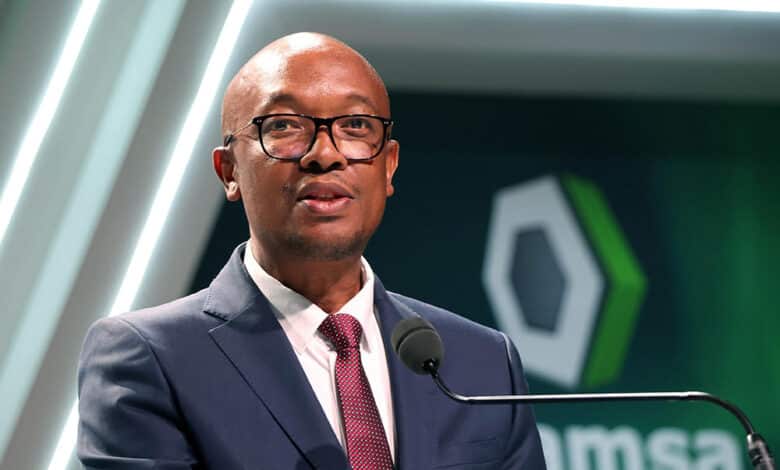Photo: Parks Tau, the minister of trade, industry, and competition
The court’s ruling also mandated that Tau, the National Lotteries Commission (NLC), and Ithuba Lottery pay the legal costs incurred by Wina Njalo’s three counsels. Furthermore, the judge emphasized that a new operator would need to establish extensive infrastructure, including manufacturing and transportation terminals across the country, to ensure the lottery’s smooth continuation.
Wina Njalo approached the court after discovering Tau’s intention to extend the license for an additional 12 months, despite the fact that the bid evaluation, adjudication committee, and independent audit had already concluded their work on selecting the frontrunners on August 31 of the previous year. Initially, Tau was expected to announce the successful bidder on September 2, sign the contract by December 13, and have Ithuba hand over operations by June 1 of this year. However, these plans were disrupted, and Tau only informed the NLC on December 20 that he was not ready to make a decision.
Throughout this period, Tau sought advice on how to ensure the lottery’s continued operation under a temporary license. On December 21, 2024, he issued a media statement acknowledging the public’s anticipation of his decision but citing the “complexity and gravity of the issues that must be considered” as reasons for delays. He expressed concern that a rushed decision could have “regrettable consequences” and continued to await guidance from the board, which only responded on February 10, stating that the period between January and June 2025 was insufficient for proper selection and subsequent processes.
Based on this advice, Tau suggested that the new license be appointed on May 31, 2026, a proposal he conveyed to the bidders. Wina Njalo, seeking clarity, approached the court on February 24, 2025, requesting transparency regarding the reasons behind Tau’s proposed extension. The minister responded in March, asserting it would be “inappropriate to disclose these issues now as disclosure would prejudice the proper adjudication of the bids,” but nonetheless proceeded to publish a temporary license.
This move sparked allegations from Wina Njalo that the temporary license was biased in favor of Ithuba. In response, Tau later clarified that the reason for seeking the extension was simply that he had not yet made a final decision.
On March 30, 2025, Wina Njalo submitted a proposal to the minister for a consent order to formalize the new target date, aiming to avoid an urgent court hearing. The minister replied on April 1, 2025, indicating he could not provide an unequivocal commitment to this proposal. Consequently, Wina Njalo filed an urgent application on March 24, arguing that extending the license without proper procedures could leave the National Lottery without a legitimate operator, risking cessation of operations and negatively impacting beneficiaries, including charity organizations.
The court concurred with Wina Njalo’s concerns, ruling that the temporary license was not a viable solution and emphasizing the importance of a lawful and transparent process for selecting the next operator. The decision paves the way for the government to establish a new, properly vetted company to oversee the National Lottery, ensuring accountability and operational integrity moving forward.
